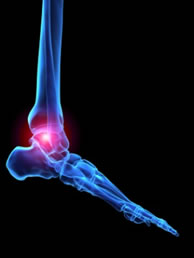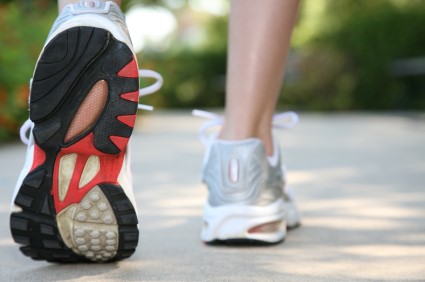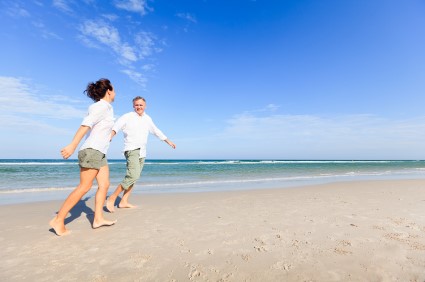 Rheumatoid arthritis (RA) exists as an autoimmune disease that attacks healthy tissue cells in the body, leading to pain and inflammation. Rheumatoid arthritis can happen at any age, with children being able to develop juvenile rheumatoid arthritis. It is especially important to regularly visit your doctor for treatment in preventing the progression of RA symptoms. Treatment options include different anti-inflammation medications and physical therapy. If RA is not treated properly, it can lead to eventual disability.
Rheumatoid arthritis (RA) exists as an autoimmune disease that attacks healthy tissue cells in the body, leading to pain and inflammation. Rheumatoid arthritis can happen at any age, with children being able to develop juvenile rheumatoid arthritis. It is especially important to regularly visit your doctor for treatment in preventing the progression of RA symptoms. Treatment options include different anti-inflammation medications and physical therapy. If RA is not treated properly, it can lead to eventual disability.
Because RA affects more than just your joints, including the joints in your Feet, it is important to seek early diagnosis from your podiatrist if you feel like the pain in your feet might be caused by RA. For more information, contact one of our podiatrists from Southeast Podiatry. Our doctors will treat your foot care needs.
What Is Rheumatoid Arthritis?
Rheumatoid Arthritis (RA) is an autoimmune disorder in which the body’s own immune system attacks the membranes surrounding the joints. Inflammation of the lining and eventually the destruction of the joint’s cartilage and bone occur, causing severe pain and immobility.
Rheumatoid Arthritis of the Feet
Although RA usually attacks multiple bones and joints throughout the entire body, almost 90 percent of cases result in pain in the foot area.
Symptoms
- Swelling & pain in the feet
- Stiffness in the feet
- Pain on the ball or sole of feet
- Joint shift and deformation
Diagnosis
Quick diagnosis of RA in the feet is important so that the podiatrist can treat the area effectively. Your doctor will ask you about your medical history, occupation, and lifestyle to determine the origin of the condition. Rheumatoid Factor tests help to determine if someone is affected by the disease.
If you have any questions, please feel free to contact one of our offices located in Fairhope, Brewton, and Atmore, AL. We offer the newest diagnostic and treatment technologies for all your foot care needs.
 Cierra Portman, freshman forward for Missouri women’s basketball team, had to have surgery in late April to repair a Lisfranc injury. A screw was inserted during surgery to repair her foot injury. Porter sustained the injury while playing during high school, which she continued to play through into her first year at MU. Following the surgery, Porter was put on recovery for 6 to 8 weeks, with her father and assistant coach, Michael Porter Sr., hopeful that she will be pain-free again.
Cierra Portman, freshman forward for Missouri women’s basketball team, had to have surgery in late April to repair a Lisfranc injury. A screw was inserted during surgery to repair her foot injury. Porter sustained the injury while playing during high school, which she continued to play through into her first year at MU. Following the surgery, Porter was put on recovery for 6 to 8 weeks, with her father and assistant coach, Michael Porter Sr., hopeful that she will be pain-free again.
Foot surgery is sometimes necessary to fix a foot ailment. To learn more, contact one of our podiatrists from Southeast Podiatry. Our doctors can provide the care you need to keep your pain free and on your feet.
When Is Surgery Necessary?
foot surgery is generally reserved for cases in which less invasive, conservative procedures have failed to help with the problem. Some of the cases in which surgery may be necessary are:
What Types of Surgery Are There?
The type of surgery you receive will depend on the nature of the problem you have. Some of the possible surgeries include:
Benefits of Surgery
Although surgery is usually a last resort, it can provide more complete pain relief compared to non-surgical methods and may allow you to finally resume full activity.
Surgical techniques have also become increasingly sophisticated. Techniques like endoscopic surgery allow for smaller incisions and faster recovery times.
If you have any questions, please feel free to contact one of our offices located in Fairhope, Brewton, and Atmore, AL. We offer the newest diagnostic and treatment technologies for all your foot care needs.
 As the warmer weather is coming around, more people are expected to start transitioning to jogging and running outside. According to Ian Hankins, coach of cross country and track and field, “When you run, you never have both feet on the ground at the same time,” so it’s important that your body is properly aligned when you run. Avoid leaning forward or backward when running. It’s also important to have proper weight training to strengthen the upper body and core. Balance is fundamental in ensuring that we maximize energy and efficiency while running.
As the warmer weather is coming around, more people are expected to start transitioning to jogging and running outside. According to Ian Hankins, coach of cross country and track and field, “When you run, you never have both feet on the ground at the same time,” so it’s important that your body is properly aligned when you run. Avoid leaning forward or backward when running. It’s also important to have proper weight training to strengthen the upper body and core. Balance is fundamental in ensuring that we maximize energy and efficiency while running.
Runners can still be prone to running injuries even with proper precautions. If you are suffering from a running injury, contact one of our podiatrists from Southeast Podiatry. Our doctors can provide the care you need to keep your pain free and on your feet.
How to Prevent Running Injuries
Many common running injuries are caused by overuse and overtraining. When the back of the kneecap starts wearing out and starts causing pain in your knee, this is commonly referred to as runner’s knee. Runner’s knee is a decrease in strength in your quadriceps and can occur if you’re not wearing properly fitted or supporting shoes. To prevent runner’s knee, focusing on hip strengthening is a good idea, as well as strengthening your quads to keep the kneecaps aligned.
What Are Some Causes of Running Injuries?
- One cause of a common running injury is called iliotibial band syndrome.
- Plantar fasciitis is also another common injury.
- Stress fractures can occur from overtraining, lack of calcium, or even your running style.
Best Ways to Prevent Running Injuries
- Wear footwear that fits properly and suits your running needs.
- Running shoes are the only protective gear that runners have to safeguard them from injury.
- Make a training schedule. Adding strengthening exercises as well as regular stretching can help keep you strong and limber and can lessen the possibility of injuries.
- Stretching keeps muscles limber, this will help you gain better flexibility.
If you have any questions, please feel free to contact one of our offices located in Fairhope, Brewton, and Atmore, AL. We offer the newest diagnostic and treatment technologies for all your foot care needs.
 Although sweating is a natural process, the body’s way of regulating our overall temperature, certain factors may lead to increased sweating. Our bodies have between two to four million sweat glands, and factors such as obesity, being sedentary, caffeine, smoking, and synthetic fabrics can make us prone to sweating. Excessive sweating is also known as a common condition in which glands across our body produce more sweat than usual. See a doctor if you feel that your sweating is flaring up excessively.
Although sweating is a natural process, the body’s way of regulating our overall temperature, certain factors may lead to increased sweating. Our bodies have between two to four million sweat glands, and factors such as obesity, being sedentary, caffeine, smoking, and synthetic fabrics can make us prone to sweating. Excessive sweating is also known as a common condition in which glands across our body produce more sweat than usual. See a doctor if you feel that your sweating is flaring up excessively.
If you are suffering from hyperhidrosis contact one of our podiatrists from Southeast Podiatry. Our doctors can provide the care you need to keep your pain free and on your feet.
Hyperhidrosis of the Feet
Hyperhidrosis is a rare disorder that can cause people to have excessive sweating of their feet. This can usually occur all on its own without rigorous activity involved. People who suffer from hyperhidrosis may also experience sweaty palms.
Although it is said that sweating is a healthy process meant to cool down the body temperature and to maintain a proper internal temperature, hyperhidrosis may prove to be a huge hindrance on a person’s everyday life.
Plantar hyperhidrosis is considered to be the main form of hyperhidrosis. Secondary hyperhidrosis can refer to sweating that occurs in areas other than the feet or hands and armpits. Often this may be a sign of it being related to another medical condition such as menopause, hyperthyroidism and even Parkinson’s disease.
In order to alleviate this condition, it is important to see your doctor so that they may prescribe the necessary medications so that you can begin to live a normal life again. If this is left untreated, it is said that it will persist throughout an individual’s life.
A last resort approach would be surgery, but it is best to speak with your doctor to find out what may be the best treatment for you.
If you have any questions, please feel free to contact one of our offices located in Fairhope, Brewton, and Atmore, AL. We offer the newest diagnostic and treatment technologies for all your foot care needs.